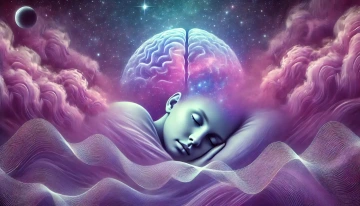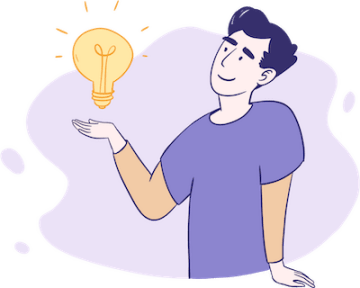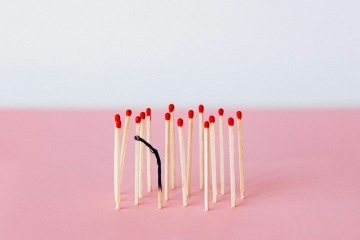The Path to Quality Sleep: Myths, Facts, and Science
April 2, 2025


Dr. Adam Kulhánek MBA
Adictologist & wellbeing expert
A leading Czech expert in addiction treatment who combines scientific knowledge with practical experience from the corporate environment. As a renowned addictionologist, he is engaged in research and clinical practice, but also teaches at the medical faculty. He has extensive experience in large corporate environments, where he applies his knowledge of the human brain and psyche to the development of managers in the areas of soft skills and wellbeing. As part of the startup Soulmio, he runs workshops on stress management, corporate wellbeing and prevention of workaholism.

Prof. RNDr. Aleš Benjamín Stuchlík, DSc.
Neuroscientist & neurocoach
Aleš Stuchlík is a distinguished neuroscientist and professor at Charles University who specializes in learning, memory and brain science. With over 20 years of experience, he has been involved in academic research and neurocoaching with a focus on improving human behavior and cognition. He has received numerous awards, published more than 100 scientific papers, and co-authored international patents. Prof. Stuchlík is also a member of the editorial board of several scientific journals and integrates his expertise in neuroscience into his coaching practice through the Neurokouc.cz platform.
The importance of sleep
Sleep is one of the basic biological needs of the human body and plays a key role in the regeneration of the body and mind. During sleep, a number of processes occur that affect physical health, mental well-being and cognitive function. The brain processes and stores information, cell renewal occurs and the immune system is strengthened. Sleep also has a major impact on hormonal balance, metabolic regulation and emotional stability.
"Sleep is absolutely crucial for our brains - it serves to regenerate neurons, consolidate memory traces and flush out metabolic waste. Scientific studies show, for example, that during deep stages of sleep, the so-called glymphatic system is activated, which helps to 'cleanse' the brain of toxins. Sleep thus affects the ability to learn, maintain attention and regulate emotions. Sleep deprivation disrupts these processes, leading to cognitive decline, memory lapses and greater emotional instability," explains Aleš Stuchlík.
"Overall sleep hygiene is more important than the exact number of hours"
Historically, sleep has taken many forms, and sleep as we know it today only came with industrialisation and electricity. Modern medicine defines eight uninterrupted hours of sleep as "healthy". Does it make sense to try to sleep "by the rules" at all costs?
"Establishing general rules for sleep - for example, aiming for roughly eight hours of largely undisturbed sleep - helps us neuroscientifically align our biological rhythms (circadian rhythms) with the needs of the body and brain. However, modern life often presents situations where it may be unrealistic to 'stick to the rules' so strictly - whether due to shift work, parental responsibilities or chronic stress. Therefore, I would say that everyone should aim for some regularity and sufficient sleep duration, but if this is not possible, there are other strategies to relieve the body. More important than exact numbers of hours is overall sleep hygiene, i.e. suitable sleep conditions (quiet, dark, ventilated room, minimal distractions) and respect for one's own daily rhythm. Understanding your body's signals is more important than dogmatic adherence to an eight-hour template," explains Aleš Stuchlík his view on sleep dogmas.
Do different generations sleep differently?
Aleš Stuchlík does not see a difference in genetic makeup, but rather in lifestyle and the amount of stressful stimuli: "Millennials and Generation Z often face more pressure to perform, but at the same time there is a growing awareness of how important sleep is. This creates a bit of a disconnect between their lifestyle (staying up late on social media or in front of screens) and their pursuit of a healthy regime. Older generations, on the other hand, tend to have their sleep shifted to earlier hours, and polyphasic sleep - short naps during the day - is more common."
How do alcohol and caffeine affect our sleep?
“Many people think that alcohol helps them sleep better. But it's actually the opposite. Alcohol may help you fall asleep faster, but the quality of your sleep will be poor overall. If we monitor a sleeping person under the influence of alcohol using an EEG, we can see that their sleep cycles are disrupted, especially the REM phases, which are extremely important for us and are shortened. According to the recommendations, we should avoid consuming high doses of alcohol within two hours of going to sleep," warns Adam Kulhánek, who then explains how caffeine works:
“Caffeine acts as a stimulant and also blocks adenosine channels, delaying feelings of fatigue. Adenosine, together with melatonin, is essential for healthy sleep management. Therefore, coffee and caffeinated beverages should not be consumed within 5 hours of going to sleep. In sensitive individuals, caffeine can lead to significant sleep disruption. However, the exception to this is people who metabolise caffeine quickly, as they can have an espresso in the evening and still fall asleep easily."
Sleep and stress
Aleš Stuchlík explains the relationship between sleep quality and mental health: “The quality of sleep is closely linked to our psyche. During sleep, the brain processes emotional experiences, which helps to maintain a stable mood and prevent anxiety or depression.' When people are under chronic stress, this often affects their sleep — they may have difficulty falling asleep, wake up more frequently, or experience unrefreshing, superficial sleep. Long-term poor-quality or inadequate sleep can then exacerbate the stress, creating a vicious cycle. Therefore, it is a good idea to focus on establishing a functional sleep routine as a means of preventing mental health problems."
Adam Kulhánek also highlights the dangers of this cycle in a work context: “In employees under chronic stress, the stress axis is stimulated over a long period of time, resulting in higher levels of the stress hormone cortisol in the blood. The body is thus permanently tense. Additionally, when people tackle work tasks in the evening, the frontal cortex of the brain remains active, preventing it from switching off. This results in the unpleasant feeling of mental overload. Highly busy employees desperately need quality sleep to recover physically, mentally and emotionally. Unfortunately, however, they often become caught in a vicious cycle of pressure and high performance at work, deteriorating sleep, even more exhaustion, a drop in energy, and feelings of uncontrollable overload."
Can you catch up on sleep deprivation?
How does sleep deprivation affect us? Can long-term sleep deprivation lead to irreversible changes in the brain?
“Short-term sleep deprivation mainly manifests as an impaired ability to concentrate, more errors and irritability. However, the risks are multiplied if we are talking about long-term sleep deprivation. As well as cognitive problems and emotional instability, there are physiological consequences, such as an increased risk of cardiovascular disease, obesity, diabetes, and a weakened immune system. In terms of the brain, there may be changes in neuronal networks and patterns of brain activity, though these are not necessarily irreversible. The brain has a significant degree of plasticity, so restoring sufficient sleep can resolve these issues. However, a long period of significant sleep deprivation can have more lasting effects on cognitive function and the psyche," replies Aleš Stuchlík.
However, if you are facing a challenging period where you know you won't get much sleep, sleeping in is pointless:
“Sleep debt cannot be made up this way. The best quality sleep respects our circadian rhythms and our individual chronotype (whether we are more of an 'owl' or an 'early bird'). The minimum length of so-called restorative sleep is seven hours of continuous sleep at the times we are normally used to going to bed and getting up. Only then can a person feel rested and refreshed,” adds Adam Kulhánek.
What are the first neurological signals that we are suffering from "silent" sleep deprivation, even if we think we are getting enough sleep?
Aleš Stuchlík explains what signals to look out for. However, many people attribute them to stress or normal work fatigue. "From a neuroscientific point of view, insufficient or poor quality sleep results in impaired prefrontal cortex function, which affects decision-making and emotional control. For some people, this also translates into mood swings and greater susceptibility to crisis situations. The body is essentially 'crying out for help' before chronic sleep problems appear."
Could taking melatonin be the solution?
"Melatonin may be a suitable supplement for individuals who have short-term disrupted sleep. For example, due to travel between time zones and subsequent jet lag, or for night shift workers. It is taken 2 hours before sleep in doses between 1-3 mg. This will help to induce sleep and stabilize the circadian rhythm in that situation. However, melatonin must not be taken by patients taking psychiatric medication (antidepressants, sleeping pills, etc.) or by pregnant or breastfeeding women. Melatonin is not addictive, but its use to promote sleep should always be short-term," explains Adam Kulhánek.
Have any special techniques (e.g. neurostimulation or sound frequencies) been scientifically proven to improve sleep quality?
“Various methods have been tried, ranging from gentle electrical stimulation of the brain to binaural beats and methods based on EEG feedback. Some studies suggest that stimulation targeted at certain frequency bands can improve sleep depth or help people to fall asleep more quickly. However, more research is needed before this can be claimed as a reliable and universal method. Moreover, some of these techniques only work for certain groups of people and may require specialised equipment or professional supervision,” replies Aleš Stuchlík.

Aleš Stuchlík's tips for better sleep:
- Digital hygiene before bedtime: Put down your phone at least an hour before bedtime and avoid blue light, as this interferes with melatonin production. If this is not possible, night light mode or blue light filters can help.
- Regularity: Go to bed and get up at similar times, even at the weekend. Our circadian rhythms thrive on stability, making both falling asleep and waking up easier.
- Wind-down ritual: Whether it's a short meditation, reading quiet literature or taking a warm shower, you need to give your brain time to calm down so it can prepare for sleep. It's a simple habit, but it works wonders.



